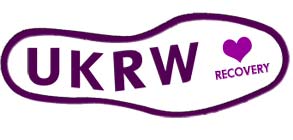Commodification, Recovery and Advocacy
I just wanted to add to the recent discussions around commercialisation, or the commodification of recovery. I think it’s important that we remember to be sensitive to institutional interests.
For me in my own advocacy efforts, just like my own recovery, I have to have periods of sustained reflection. Particularly, at the moment, on the sociopolitical and economic influences that influence alcohol and other drug problems.
Of course we have to be mindful of the existence of predatory industries that promote and profit from addictive products. Yes, products. Let’s not kid ourselves here. And we do have to ask openly and confront the ways in which public health can be sacrificed for corporate gain.
As advocates we are also calling upon today’s treatment organisations to become more accountable to the needs of the individuals, families, and communities they serve. And why shouldn’t they? After all addiction rarely happens in isolation.
I’m sure this movement is not about lobbying for an infinite number of ever-expanding addiction treatment centers. It is about nurturing the development of indigenous recovery-support resources that diminish the need for professionally directed treatment. It is about using the raw materials of addiction and healing to rebuild and revitalise families,and communities.
It is about recognising the healing power of a community of shared experience embraced by larger communities of hope and encouragement. Well it is for me anyway.
I love how Bill White puts it in his paper Toward a new recovery movement
“The leadership of the recovery movement must come from the recovery community and the movement’s agenda must be those of recovering people and their families. Great care must be taken in avoiding the problem of double agentry – individuals speaking openly as recovering people while their voices actually represent hidden professional or institutional interests.
The movement must guard against those who will seek to colonise this movement to further their own personal, professional, and proprietary interests.
Federal/state alcohol and drug authorities, treatment institutions, and treatment professionals may be supporters, members, and partners within this movement, but the leadership must come from within the indigenous recovery community.
Where few indigenous resources exist, local treatment agencies/professionals can play a role in nurturing the development of such resources, but it is the recovery community itself that must eventually assume the central role in recovery advocacy and in the design, delivery and evaluation of key recovery support services.
The recovery movement is greater than its leaders, and it is that higher value which compels these leaders to honorably represent the movement and to not wound the movement through personal excesses or indiscretions. What advocacy movements demand of their most visible leaders is not perfection but continual vigilance and a reasonable congruence between the life lived and the implicit and explicit values of the movement. The weight of this mantle of leadership can be a considerable one.”
Wise words for us all, eh folks.
On a slightly different note I want to make what I feel is a very important point. Let me say this loud and clear please, “Recovery advocacy is a philosophy of social action; it is not a programme of personal recovery”.
My experience of being in recovery, and undoubtedly in the history of the recovery advocacy movement, has shown that the grave yard, pubs and shooting galleries are full of folks who thought that they could get and stay sober by trying to change the world.
Do not make the mistake that advocacy equals recovery. Advocacy is not a means of achieving or sustaining personal recovery it is only one of many possible fruits of recovery.
I remind myself, and you, that participation in social change must not obscure the primacy of personal recovery as a foundation for larger service to the community. It must not become a diversion from those daily activities that sustain and enrich my own personal recovery. And for me one of those activities is practicing some principles in all my affairs.


No comments:
Post a Comment